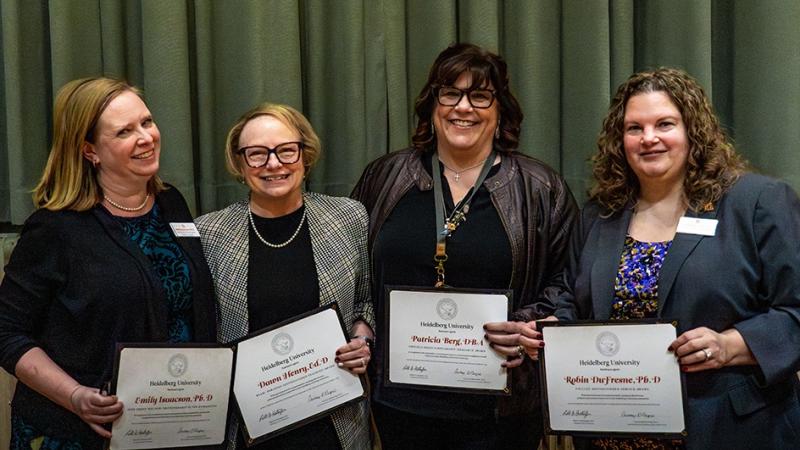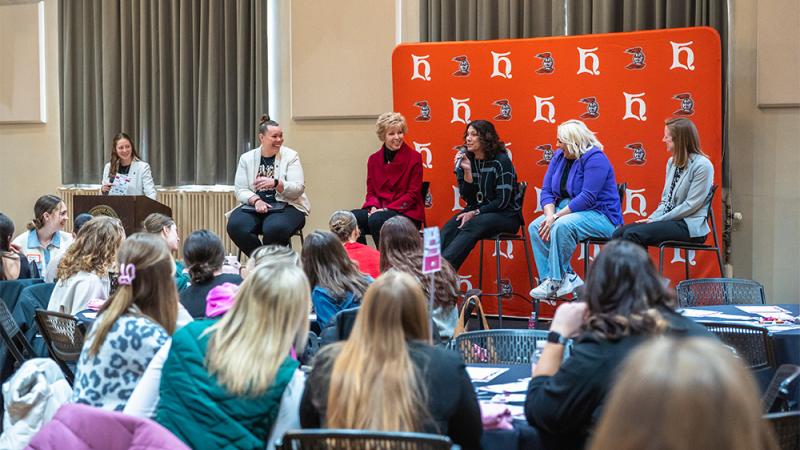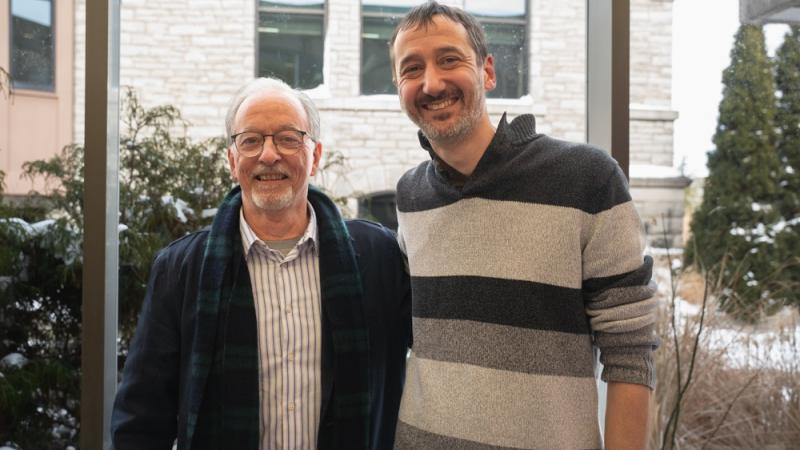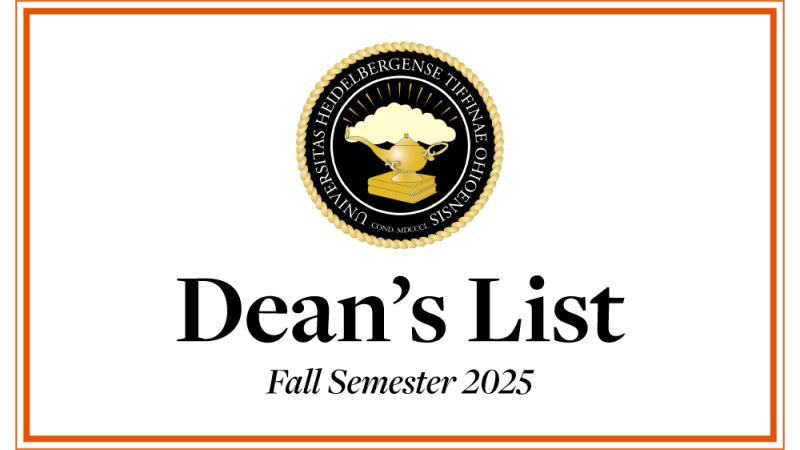Hands-on, head start: Young alumni share the lasting value of Body Donor Lab
When Heidelberg University science alumni talk about what sets them apart in graduate school and beyond, one experience rises to the top: the Body Donor Lab.
For Devyn Carder ‘21 and Emma Keto ‘25, the chance to learn anatomy and physiology through Heidelberg’s cadaver-based courses was transformative, preparing them not only for advanced studies but also to thrive in healthcare careers.
Devyn, now an occupational therapist specializing in neurological rehabilitation at Parkview Health System in Fort Wayne, Indiana, also teaches anatomy in the cadaver lab at Huntington University’s Occupational Therapy Doctoral Program. She points to Heidelberg's anatomy curriculum as the foundation of success.
“I loved my experience at Heidelberg. It prepared me very well from an anatomical viewpoint that was specific to my career goals and aspirations in OT.” She adds, “Cadaver was an experience that allowed me to be hands-on and dive into the specific structures I would have to understand in greater depth later in school.”
Devyn recalls the challenges of learning the “small intricacies of the human body” and adapting to the uniqueness of each donor. However, she also calls the opportunity “profoundly rewarding.”
“The Body Donor Lab provided a unique advantage in mastering anatomy, which has been invaluable in preparing for graduate school,” she says. “The donors’ selfless decision to contribute their bodies to science created an extraordinary learning environment.”
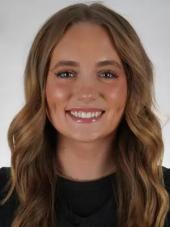
Emma, now a first-year student at Lake Erie College of Osteopathic Medicine (LECOM), has found herself ahead of the curve among her medical school peers.
“The Body Donor Lab was one of the most impactful parts of my undergraduate education,” Emma explains. “Many of my peers in medical school never had the chance to work with cadavers before, and I can tell that I’m at a real advantage because of that early exposure. Almost everything I learned at Heidelberg in the lab is transferring directly to my medical school coursework.
Both Emma and Devyn also credit Heidelberg’s faculty, especially longtime biology professor Dr. Pam Faber, for her mentorship and support.
“Dr. Faber is an incredible mentor and advocate. She consistently pushes us to do our best and provides opportunities for leadership and volunteering in the anatomy department,” Emma said. “Her guidance was invaluable in helping me gain admission to medical school without taking a gap year.”
Devyn echoed that statement: “Dr. Faber was a great mentor to me in many different ways. Completing mammalian dissection as well as cadaver, along with A&P, provided me with so many opportunities to practice my anatomical skills, allowing me to feel truly competent and confident in my skills for higher level studies,” she said.
Both young alumni say they are grateful for Heidelberg’s hands-on approach to science education and the opportunity to work directly with donor bodies, an experience typically reserved for graduate-level studies.
Devyn aspires to pursue a certification as a stroke rehab specialist while continuing to teach and research anatomy.
Emma is exploring specialties including OB-GYN, family medicine, and pediatrics. No matter where their careers take them, the foundation they built at Heidelberg continues to guide their success.
ー by Kaidan Mathias '25, MBA May ’26

